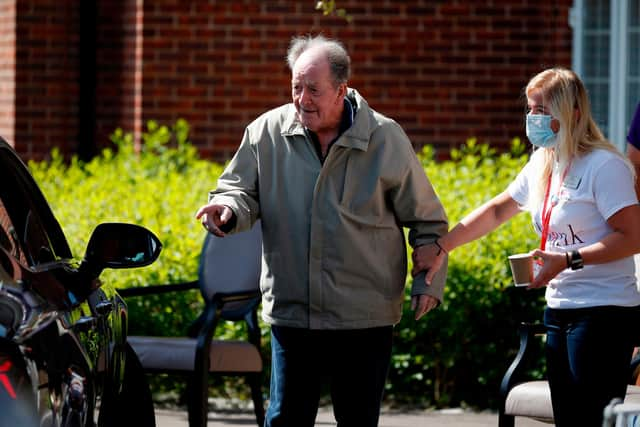Sheffield university research shows community work during lockdown could influence social change post Covid-19 crisis
and live on Freeview channel 276
The ‘Models and frameworks for coordinating community responses during covid-19’ study has revealed that the collaborative work of mutual aid groups to support vulnerable people while the nation was in shutdown could offer a new blueprint for future social action.
Researchers analysed the frameworks used by local authorities and their partners to coordinate community support during the national lockdown and reported the significance of hyper local, informal volunteering and good neighbourliness.
Advertisement
Hide AdAdvertisement
Hide AdThe second of three reports by Mobilising Volunteers Effectively (MoVE) led by Dr Jon Burchell and supported by £382,000 of funding from the Economic and Social Research Council (ESRC), brought together experts from the universities of Sheffield, Leeds and Hull.


The joint-university report found that voluntary and community sector organisations which already had pre-existing levels of trust and collaboration were able to coordinate a quick response to needs and share responsibilities.
Researchers also noted how a key aspect of the successful, collaborative community working was enabling groups to work flexibly and share information and resources.
Local authorities often recognised they were not always best placed to provide support and developed responsibilities to voluntary organisations, the study showed.
Advertisement
Hide AdAdvertisement
Hide AdIt comes after national response strategies were criticised for failing to understand local needs and being too slow due to excessive checks and procedures.
Dr Burchell, from the University of Sheffield’s Management School, said: ‘Our second report identifies three main frameworks that were used to coordinate volunteer and community support.
"We identify the key foundations on which these models were developed, the distinctive types of models being utilised, and what lessons can be learned from these which might help shape post-Covid models of social action and community partnership.’
Co-investigator, Dr Erica Ballantyne, said: “It’s remarkable what has been achieved under the common goal of creating a fast and effective response to meeting the needs of communities during the pandemic.
Advertisement
Hide AdAdvertisement
Hide Ad"These models have been underpinned by flatter, decentralised organisational structures with shared decision-making, greater collaboration and more subsidiarity.
"Importantly, moving away from departmental silo working has allowed the response to be more joined up and rooted in place.
"We’ve seen the strength of voluntary and community sector organisations and the importance of pre-existing commitments to partnership working and co-production.
"Where trust and relationships had already been built, working together across sectors was more straightforward.”
Advertisement
Hide AdAdvertisement
Hide AdDr Harriet Thiery, researcher on the project, added: "The report suggests that it is important to ask the question why, when faced with such a significant crisis, did these forms of place-based collaboration come to the fore as models for enabling effective community support?
"If these models were deemed to be the best option under such challenging circumstances, why have we been so reluctant to work in this way before?
"Our challenge now, is learning from what has worked well during the national lockdown and beyond, and understanding what is needed in order to harness and build upon these developments as we move forward, rather than simply retrenching into conventional ways of working.”